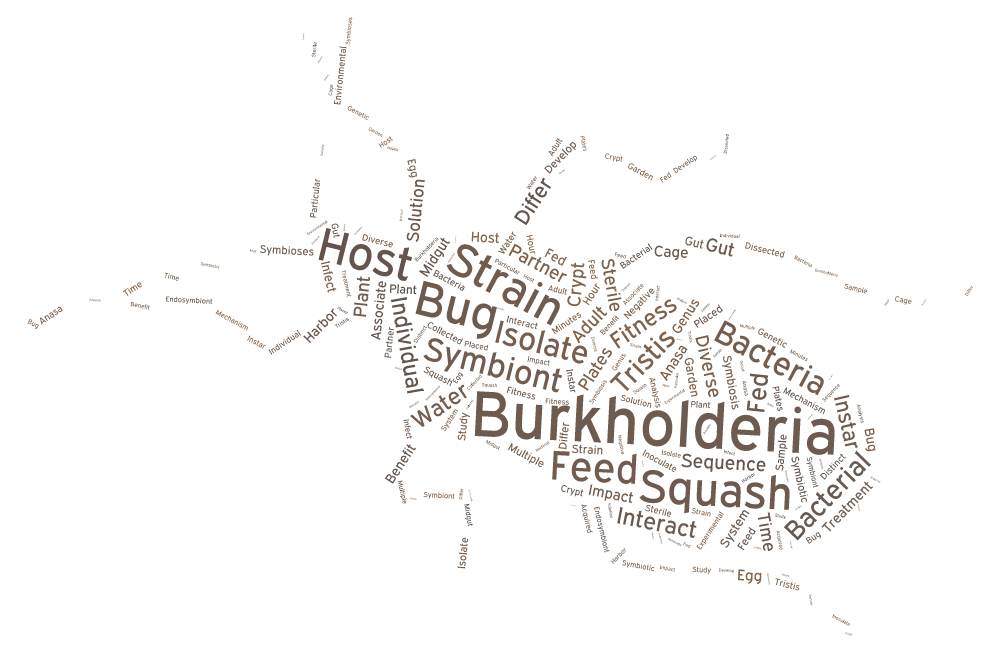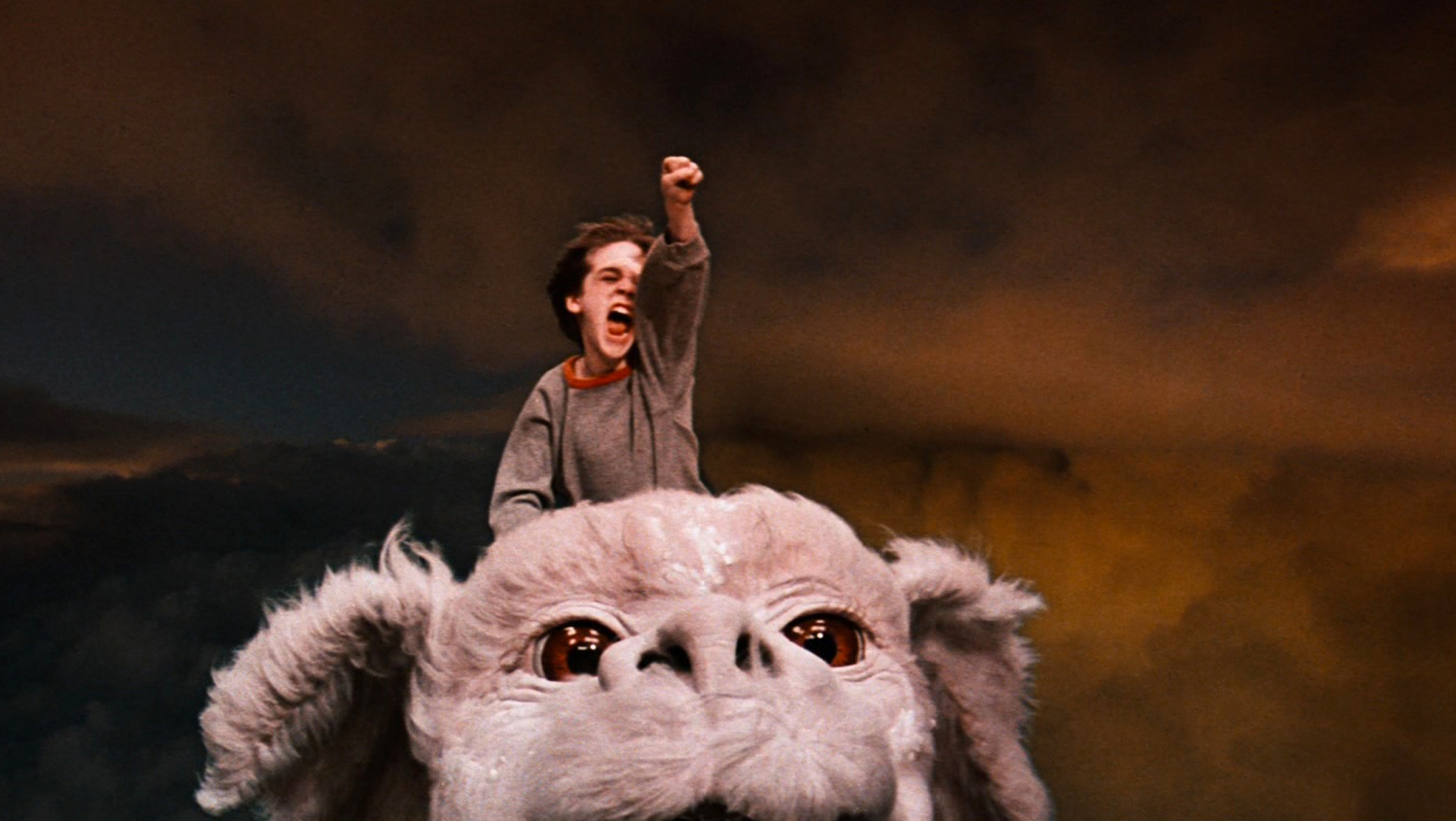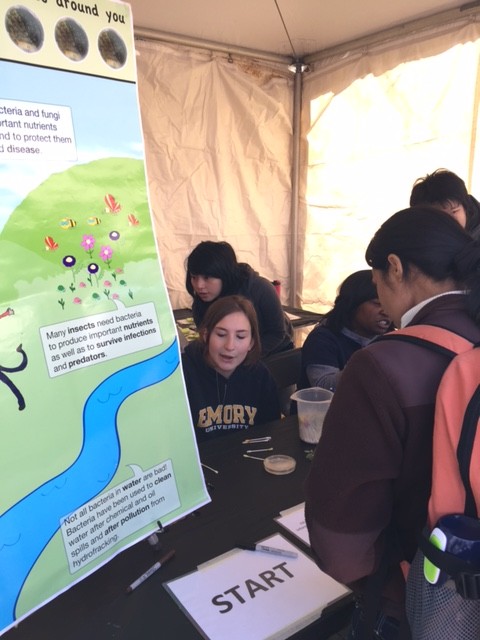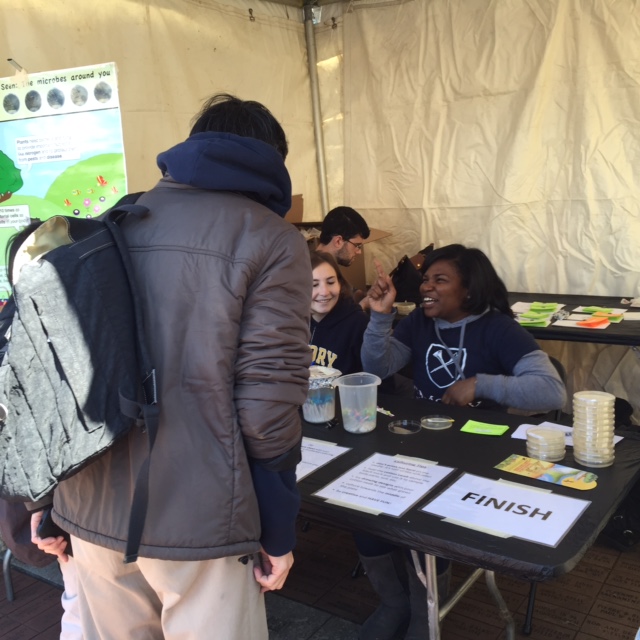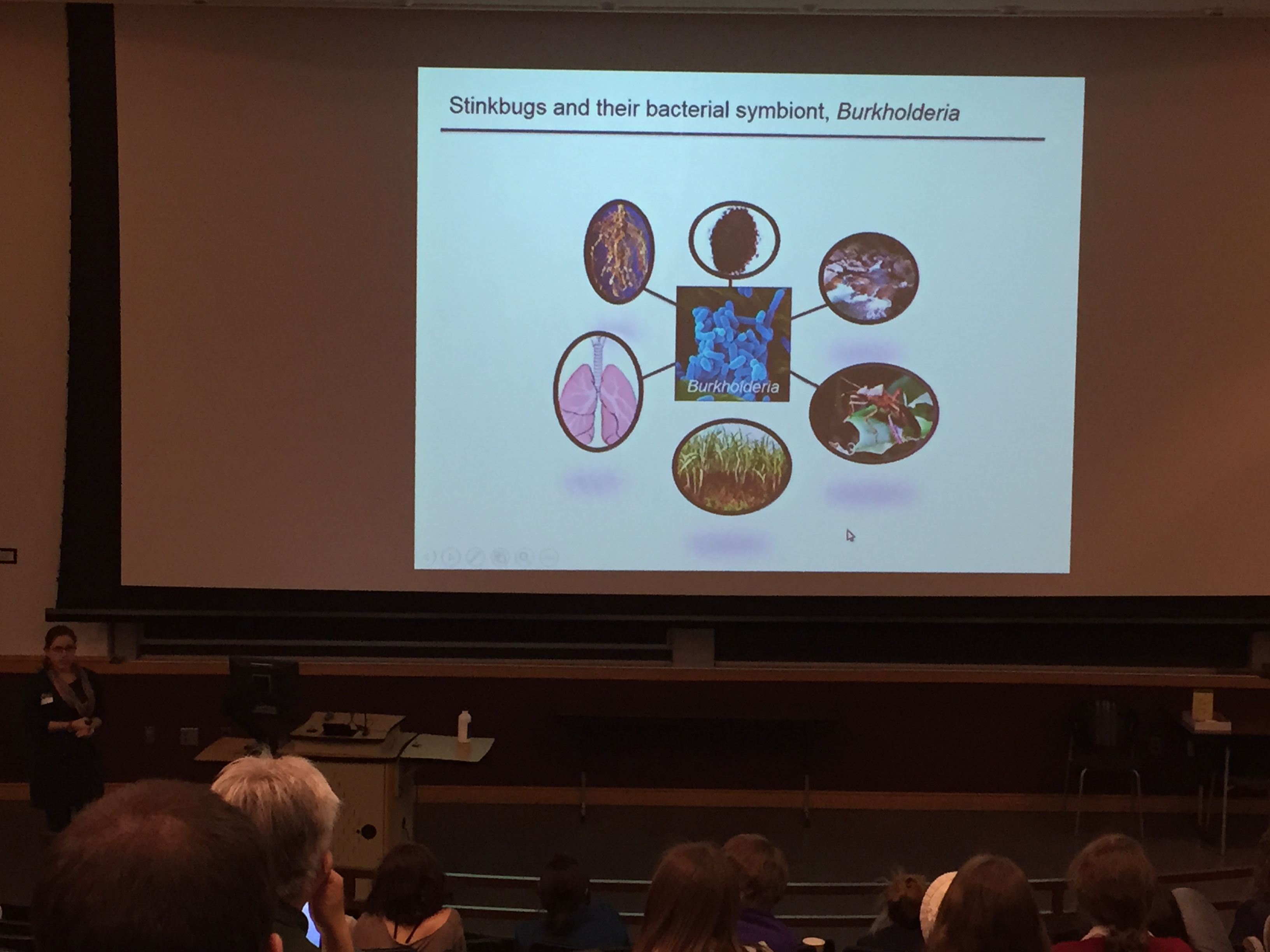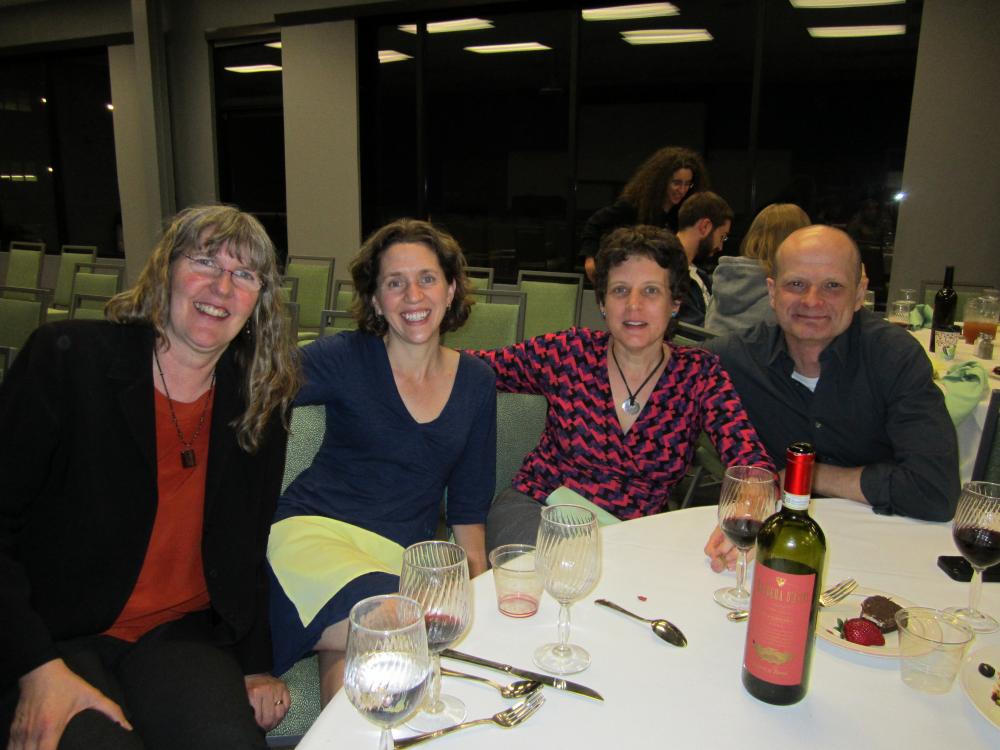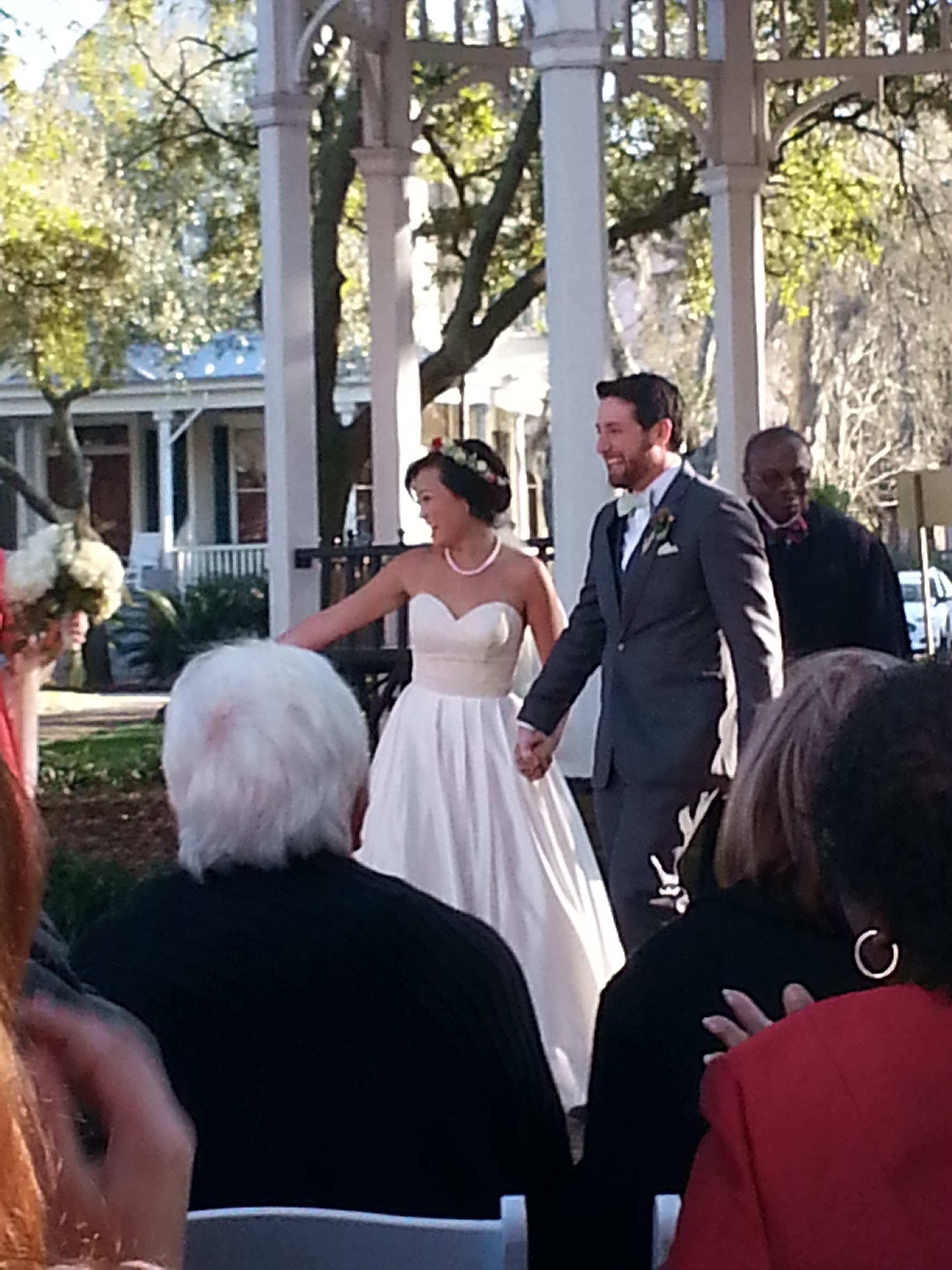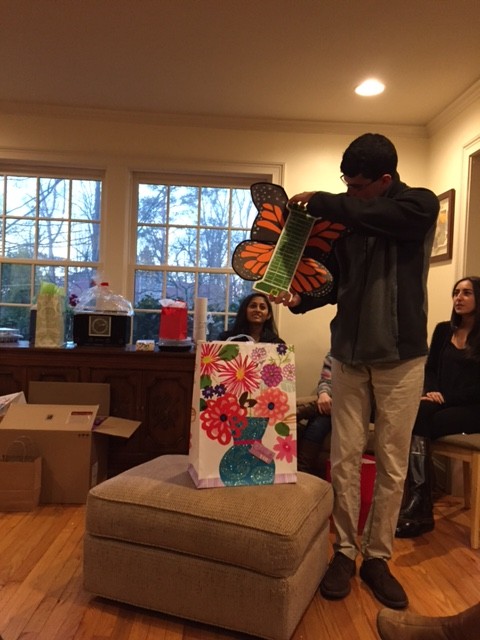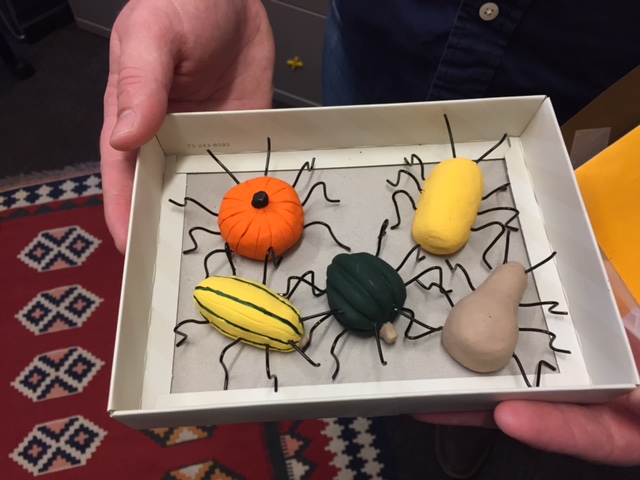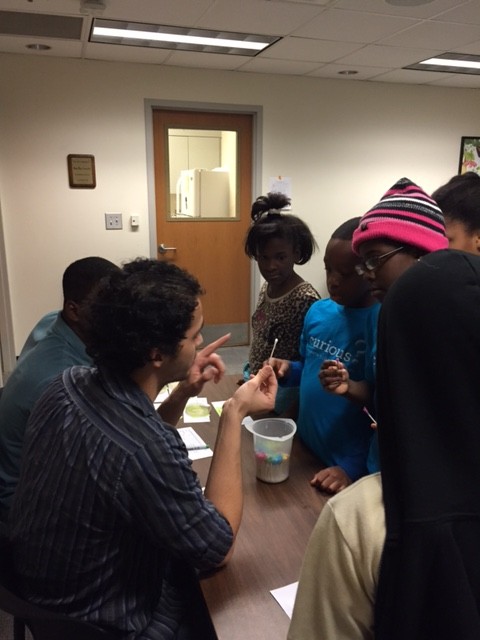Work on aphid-symbiont-ladybird beetle interactions by former postdoc Jen Kovacs (now at Spelman College) and former undergrad Kelly Costopoulos (now attending medical school) was featured in Entomology Today.
highest honors for greg
dr. justine
mycrobes takes to the park
The Gerardo lab participated in the second annual Atlanta Science Festival this weekend. At the expo, members of the lab cultured 400 plates of Luria Broth agar with members of the Atlanta community. Participants swabbed hands, ear, noses, cell phones and the bottoms of their shoes. Check out mycrobes.org to see what grows.
justine is an early career scientist
Graduate student Justine Garcia participated in the University of Michigan’s Early Career Scientists Symposium last weekend. The invitation to speak was quite an honor. Meghan Duffy (U. Mich) sent this picture from the audience.
desert visit and science
by Nicole Gerardo
I was fortunate enough to get invited to the University of Arizona to give a talk at the Center of Insect Science along with several other former postdocs of PERT, the Center’s NIH IRACDA postdoctoral program. Other former postdocs in attendance were Alex Wilson, Luciano Matkzin, Jeff Riffell and Armin Moczek
. What an amazing evening of science!
congratulations, stephanie
art-science-santa
This year’s Art-Science-Study-System-Secret-Santa-(and ice cream)-Social-(with)-Soup (ASSSSSSS) was a great success. Members of the Gerardo, De Roode, Hickman, Morran and labs drew names of a hat, and then each person made a gift based on their person’s study organism. I got a deck of cards with all of my lab’s insects (microbes included). Greg, an undergrad in the Gerardo lab, received some clay squash bugs — pumpkins and acorn squash with six legs. Gifts were knit, baked and painted.
Happy ASSSSSSS-mas.
mycrobes gets schooled
Mycrobes
Microbes are everywhere and are critical for the health of all living organisms, including humans. To expose people to the microbial world around them, We developed mycrobes.org, a website where people can watch the beautiful forms of growing bacteria and fungi that they have cultured themselves. We would be happy to come to your school or group to culture microbes and to discuss the importance of microbes in the systems that we study.

